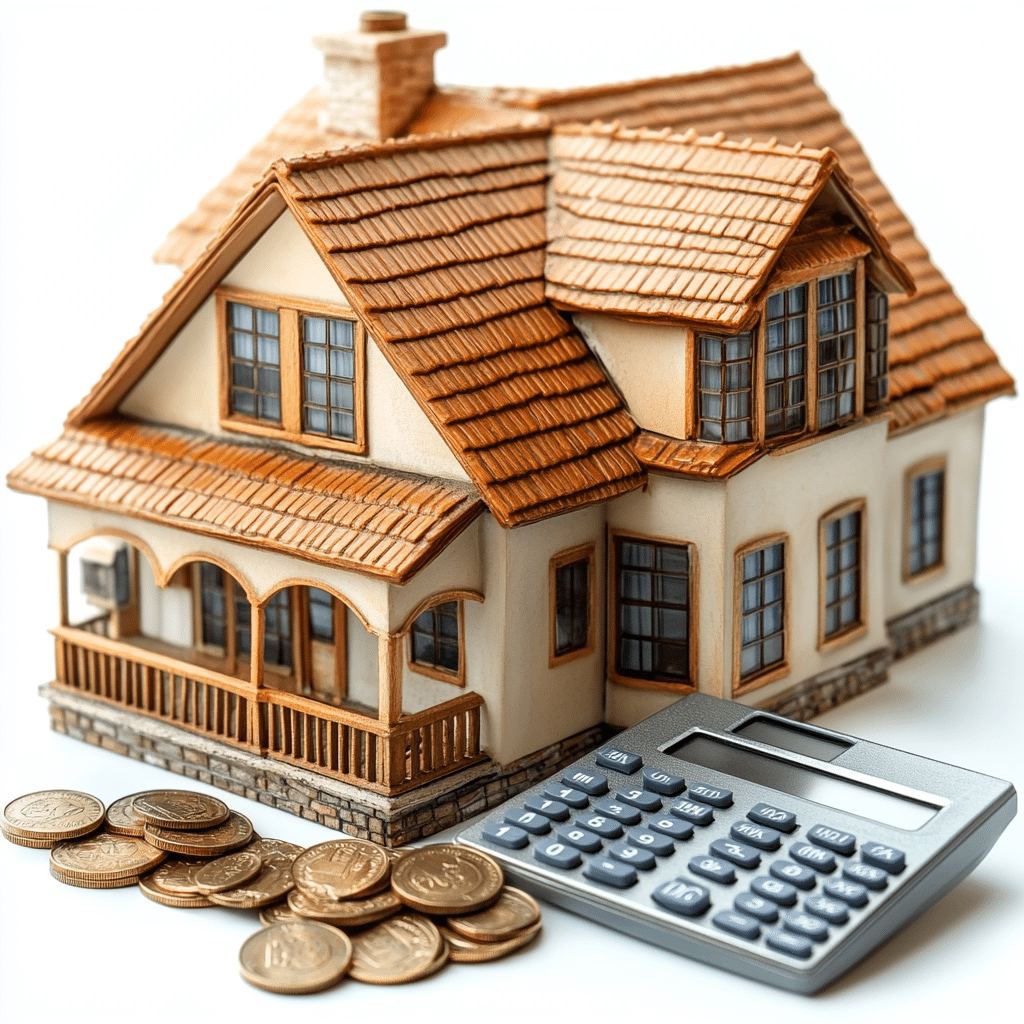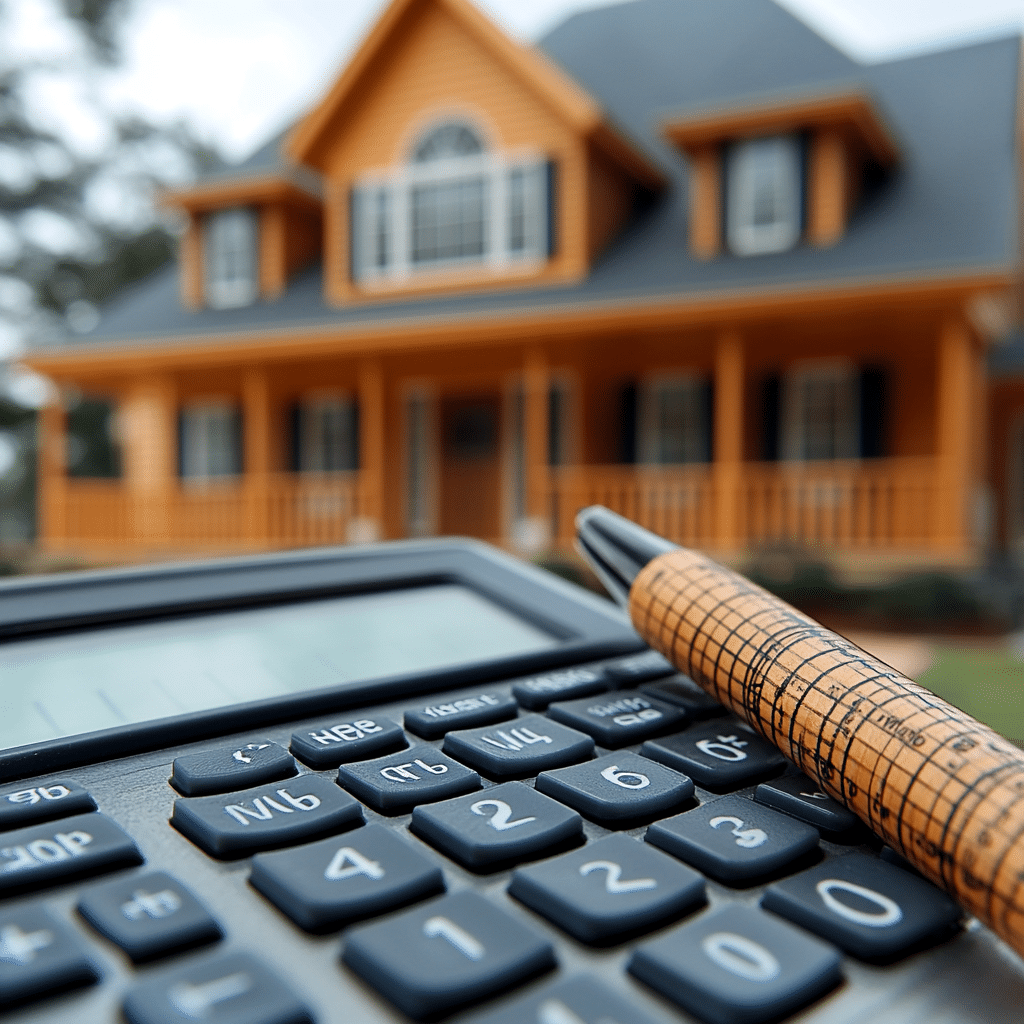Navigating the home-buying process can feel overwhelming, especially when it comes to understanding your budget and what you can truly afford. The how much house can I afford calculator is a vital tool that can guide you in your journey. This article peels back the layers on this essential calculator, showing how it impacts your home-buying decisions, and equipping you with the knowledge to make informed decisions. Let’s dive deep into the secrets behind these calculators and how they can simplify your journey to homeownership.

Top 7 Secrets Behind the How Much House Can I Afford Calculator
1. Understanding Debt-to-Income Ratio (DTI)
The debt-to-income (DTI) ratio plays a crucial role in determining how much mortgage you can afford. Lenders typically prefer a DTI of 36% or lower. This means if you earn $6,000 a month, your total monthly debt obligations—including your mortgage—should aim to stay at or below $2,160.
By keeping your DTI in check, you not only increase your chances of mortgage approval but also keep your finances healthy. In essence, understanding how lenders view your DTI can help you strategically position your finances before house hunting.
2. Exploring Credit Score Implications
Your credit score significantly influences the interest rates you can secure, which ultimately determines how much house you can afford. According to Experian, if you have a score of 740 or above, you could land lower rates. Over time, this means substantial savings—sometimes thousands of dollars—especially over a 30-year mortgage on a $300,000 home.
For instance, if your interest rate differs by 0.5%, this could translate to over $100 less in monthly payments, freeing up your budget for other essentials. Therefore, it’s worth taking time to check your score and engage in financial strategies that can help you improve it before serious mortgage shopping.
3. The Importance of Down Payment
The size of your down payment is a major determinant of how much house you can afford. A typical guideline advocates for a 20% down payment if possible. So, for a $400,000 home, that means shelling out $80,000 upfront.
Not only does a substantial down payment reduce your loan amount, but it can also eliminate Private Mortgage Insurance (PMI), resulting in lower monthly payments. Thus, being strategic about your down payment can save you a significant amount of money over the life of your mortgage.
4. Impact of Interest Rates
Interest rates are like a seesaw—they fluctuate, impacting your mortgage affordability each time they swing. For example, if rates rise from 3.5% to 5%, your monthly payment on a $300,000 loan could shoot up by over $300. Slide the interest rate into the equation, and suddenly you’re looking at a very different mortgage scenario.
Understanding when to purchase can be a game-changer. Monitoring interest rates can help you time your buying process to get the best deal possible.
5. Mortgage Types Matter
When it comes to mortgages, one size certainly does not fit all. Different types of loans come with varying terms that can greatly affect your budget. A conventional fixed-rate mortgage offers predictability. Your payments will stay stable throughout the loan term.
On the flip side, an Adjustable-Rate Mortgage (ARM) may start with lower initial payments but can increase significantly as rates change. Assessing the differences helps you budget accordingly, ensuring you’re prepared for what each mortgage type could mean for your finances.
6. Hidden Costs of Homeownership
When you’re planning how much house you can afford, don’t forget those sneaky hidden costs. Your principal and interest aren’t the only monthly expenses you’ll encounter. You’ll need to account for property taxes, homeowner’s insurance, and maintenance. For instance, in Utah, a home valued at $350,000 might incur property taxes of about $4,200 annually, adding roughly $350 to your monthly payment.
Being aware of these costs can prevent unpleasant surprises down the road, helping you build a financial cushion that brings peace of mind.
7. Post-Bankruptcy Buying Power
Have you experienced bankruptcy? Then the question of what mortgage can I afford takes on a new layer. Lenders often require a waiting period of 2-4 years after bankruptcy before you can secure a mortgage. This can significantly affect how much house you can afford as you maneuver your financial recovery.
Understanding the limitations and seeking financial education during this time can empower you during the subsequent buying process, helping you regain your footing in the property market.

How Much Rent Can I Afford and Its Relation to Buying a Home
The transition from renting to owning often hinges on a similar question: how much rent can I afford? The rule of thumb suggests that spending no more than 30% of your gross income on housing is ideal. For someone earning $70,000 a year, this translates into a rental budget of around $1,750 monthly.
However, purchasing a home calls for additional financial considerations beyond this basic metric. Making an informed choice about whether to buy or rent is pivotal, especially when evaluating long-term economic benefits. Compare and calculate to see if buying is truly more economical in your situation.
How Can I Make Money From Home While Planning for a Mortgage?
If you’re tightening your budget and thinking how can I make money from home, you’re on the right track. Engaging in side hustles—like freelancing or tutoring online—can bolster your income, enhancing your buying power. This added income not only helps you save for a down payment but can also improve your debt-to-income ratio.
For example, someone earning an additional $500 monthly from a side job could potentially increase their buying capacity, allowing them to qualify for a larger mortgage. Every dollar counts, so being proactive about finding alternative income sources can put you closer to owning your dream home.
How Much Home Can I Afford: Beyond the Calculator
The how much house can I afford calculator serves as a straightforward starting point, but it’s not the final word in home buying. Emotional readiness and lifestyle choices play a massive role too. The joy of homeownership shouldn’t come with overwhelming stress.
Before making your purchase, consider future plans, job stability, and family needs. These factors help you create a comprehensive strategy that goes beyond mere numbers and aligns with your lifestyle and aspirations.
By understanding these secrets, you can navigate the nuanced landscape of home buying—transforming numbers from a calculator into a comprehensive plan tailored to your financial profile. Each element influences your home-buying journey, shining a light on informed decisions that align your housing goals with your personal and financial future.
With tools like the how much house can I afford calculator, a clear understanding of your budget, and planning ahead, the path to your new home becomes clearer and more achievable. Happy home hunting!
How Much House Can I Afford Calculator Secrets You Need
Understanding the Basics
When you’re on the hunt for your dream home, the question of “how much house can I afford calculator” looms large. This tool’s main job is to give you a clearer picture of your finances and help you avoid falling head over heels for a property that’s out of reach. Alongside remembering your credit score and down payment, it’s wise to look into prequalifying options, like with something like American Express’s prequalify tool. Trust me, you wouldn’t want to get your heart set on a place only to discover you’re over budget!
Fun Facts About Home Buying
Did you know that at real estate Auctions, properties can sometimes be sold for surprising amounts, sometimes far below market value? It’s kind of like treasure hunting, but without the pirates! Speaking of getting the best value, understanding how much you’re willing to pay annually in taxes can significantly influence your affordability. Be sure to check out the Utah tax rate if you’re considering relocating there! Additionally, if you’re pondering how much it costs to build a home instead of buying, knowing the ins and outs can help you make a more informed decision.
Fun With Calculators
Here’s a fun nugget: did you know that calculators designed to estimate home affordability consider multiple factors, including your income and debts? That’s why using a how much house can I afford calculator can take the mystery out of budgeting. They often have built-in features to help you understand what’s really affordable for you. And while you’re crunching numbers, think also about what kind of warranty you’ll want on your new home. Companies like Choice Home Warranty even hand out awards for their excellent service! That way, you can ensure your investment is protected.
Now, for a little pop culture trivia, ever heard of Yoko from “Gurren Lagann”? Just like Yoko always stood strong no matter the odds, you too have to stand firm on your budget. Keep that vision in mind as you use your trusty house calculator and pursue your home dreams!




